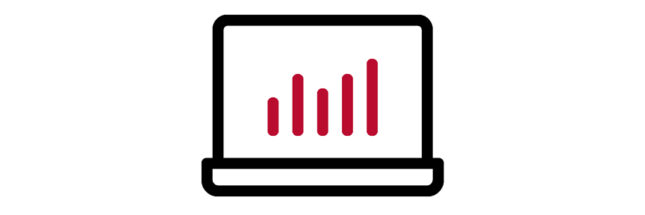Supporting career development

The EXPLORE program in the Gateway Curriculum is a formalized approach to career development that helps WashU MD students find their niche in academic medicine. It allows students to explore and define their individual career interests and aspirations, then to pursue those interests and gain exposure to academic careers.
EXPLORE is a longitudinal, immersive experience that begins during Phase 1 and continues throughout medical school. It connects students to physician role models and mentors, creates opportunity for scholarship in key academic pathways, and provides core training in the respective career pathway.
The four academic pathways
Students choose from four academic pathways, with flexibility to change pathways after the EXPLORE Immersion as desired.

ADVOCACY/GLOBAL HEALTH
Learn about the health challenges in resource-limited settings globally and locally and how to contribute to addressing them.

EDUCATION
Gain knowledge, skills, and experience in curriculum design, program evaluation, assessment, and teaching.

INNOVATION Experience how ideation, valuation, and implementation pair with clinical skills to drive medical advances.

RESEARCH
Learn how scientific discovery influences the way we practice medicine.
Gateway phases & the EXPLORE Program
The EXPLORE Program is intended to align with student needs at each curricular phase. In Phase 1, students gain understanding of each Pathway and choose one to study during the EXPLORE Immersion. They also connect with mentors, work to define a scholarly project, and take the first steps towards accomplishing their project’s goals.
In Phase 2, during the clinical rotations, students have the option of attending networking and learning opportunities for any of the four Pathways. Many students will continue longitudinal scholarship work during Phase 2 and some students take up to 16 weeks for dedicated project work during this period.
In Phase 3, all students have the opportunity to dedicate significant time to work on their individual project. Students also have the opportunity to further their knowledge and skills within the respective Pathways by choosing from various electives.
The EXPLORE Symposium is a common thread throughout the three phases of the Gateway Curriculum. Early phase students present plans for their scholarly projects for feedback, while later phase students present completed studies and discuss next steps.
During Phase 1, students have the option to participate in lunch-time conferences to learn about mentorship and career paths within the four EXPLORE Pathways. The goal of these conferences is to expose students to each pathway and prepare them to choose a pathway to participate in for the EXPLORE Immersion. Students are asked to choose a pathway in Spring for the purpose of the Immersion.
Critical Phase 1 dates
September: EXPLORE Introduction
October: EXPLORE Mentorship Skills Session
October-February: EXPLORE Networking Sessions and Career Panels (one of each for each Pathway)
October: EXPLORE Symposium
February: EXPLORE Pathway Speed Dating
March: Students select an Immersion Pathway for their EXPLORE Immersion
May-June: EXPLORE Immersion
What is the EXPLORE Immersion?
The EXPLORE Immersion entails four weeks of dedicated time to: (1) learn the foundations of scholarship in academic medicine, (2) gain knowledge and skills in a student’s chosen pathway, and (3) work on a project of your choosing with a WashU faculty mentor. All MD students participate in the Inquiry Curriculum and then break off to participate in pathway-specific curricula in the afternoons. The Inquiry Curriculum prepares students to be responsible and impactful scholars in any of the four pathways. The EXPLORE Immersion also sets aside time for students to network with potential project or research mentors, develop a project plan, and work on their projects.
During Phase 2, the clinical clerkships, students have the opportunity to participate in the pathways as much or as little as desired, as long as clerkship engagement and performance is not jeopardized. The EXPLORE Pathways each offer pathway-specific opportunities for networking and for learning. In addition, students may participate in voluntary research or project-work during this time. Many students will work with their mentor during this stage to plan project work to be done in Phase 3. A few students choose to defer clerkships to focus on project work for 16 weeks during Phase 2.
Phase 3 offers the most flexibility for EXPLORE activities. Students may choose to dedicate significant time to their scholarly project. For those students who wish to pursue them during phase 3, scholarly accomplishments can be recognized with EXPLORE distinctions. Motivated students may elect to take additional time during phase 3 for dual-degree or the year-long research programs.
Dual Degree Options
Several dual degree and year-long programs are available in the areas of biomedical research, clinical investigation, population health sciences, public health, business administration, applied health behavior research and biostatistics, among others. Students interested in pursuing any dual degree option, including the Medical Scientist Training Program (MD/PhD), can find further information via the Degree Programs page.
Medical Scientist Training Program (MSTP):
Students who matriculate into the MSTP program will participate in the MSTP thread during the EXPLORE Immersion.